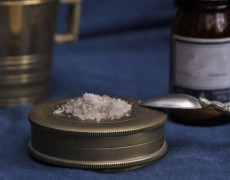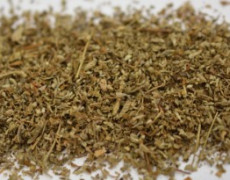What are the health risks of snorting drugs?


There are many different ways to take illegal drugs, but it’s more common to see someone popping a pill, or snorting something during a night out.
There are many different ways people consume illegal drugs, with snorting being a common way to take cocaine, amphetamines, and prescription medication. The main difference between snorting and taking something orally is it speeds up how quickly the effects kick in. But snorting drugs can lead to significant cosmetic damage and long-term harm, including causing permanent damage to the respiratory system.
The difference between swallowing and snorting drugs
When drugs are consumed orally the pill must be broken down in the stomach before it’s able to enter the blood stream and reach the brain.
Snorting a drug means the substances skips the stomach and directly enters the bloodstream by passing through the thin nasal membrane and into the surrounding blood vessels, meaning the brain is affected in a shorter amount of time.
It’s very common to see cocaine and amphetamines being snorted in pop culture, but in reality various drugs can be taken this way, and they all come with their own risks.
In New Zealand, where cocaine use isn’t as common as it is overseas, it’s more likely that MDMA crystals will be snorted. As crystals are larger than the powder granules, this can cause further additional health risks.
| Stay safer by staying informed. Sign up to receive alerts and notifications about any dangerous drugs in NZ. Check out the alerts page to see what we've already found. |
What are the health risks of snorting drugs?
The nasal membrane in the nose is incredibly delicate. Every time drugs are snorted, it causes the blood vessels in the membrane to constrict. This tissue can easily be damaged, causing long term respiratory harm.
Prolonged use can cause holes to appear in the soft tissue in the nose and the erosion of the septum (the cartilage between your nostrils), eventually causing the ridge of the nose to collapse, a condition known as ‘cocaine nose.’
Some other long-term health effects of snorting drugs can include:
- Loss of smell
- Nose bleeds
- Frequent runny nose
- Breathing difficulties
- Problems with swallowing
If drugs are regularly snorted over a long period, the damage to the nose can be substantial. While some of the cosmetic damage may be able to be repaired through surgery, severe internal damage may be irreversible.
As damage to the nose gets worse it can spread to other nearby organs, including eyes and ears, even resulting in vision loss and hearing loss, and infections to the brain and spine.
While no drug use is the safest drug use, some steps can be taken to help reduce the risks.
- Low doses are safer, and it’s best to avoid re-dosing to lower the risk of overdose.
- Don’t re-use or share any materials to take drugs that have been handled by multiple people.
- Avoid mixing drugs – the combined effects can be unpredictable and increase risk
- Have a plan – as with all drug use, it’s better to have people around that you trust and who have knowledge of first aid.
If you have any concerns about your own drinking or drug taking, get in touch with the Alcohol Drug Helpline on 0800 787 797, or text 8681. You’ll be able to speak with a trained counsellor who can provide you with helpful information, insight and support. They’re available 24/7, all calls are free and confidential. You can also chat to the team through their website.
Latest Articles

15 Apr 2024
Thinking of using GBL/GHB?

12 Apr 2024
Ketamine and bladder damage – know the risks

8 Mar 2024
Synthetic cathinones explained

22 Feb 2024
What’s happening with synthetic cannabinoids?

31 Jan 2024
What is tuci?

19 Jan 2024
Answering some common questions about MDMA

10 Jan 2024
Understanding the risks of the comedown

5 Jan 2024
Looking after your mental health

15 Dec 2023
Tips for a safer night out

12 Dec 2023
To mix it is to risk it
